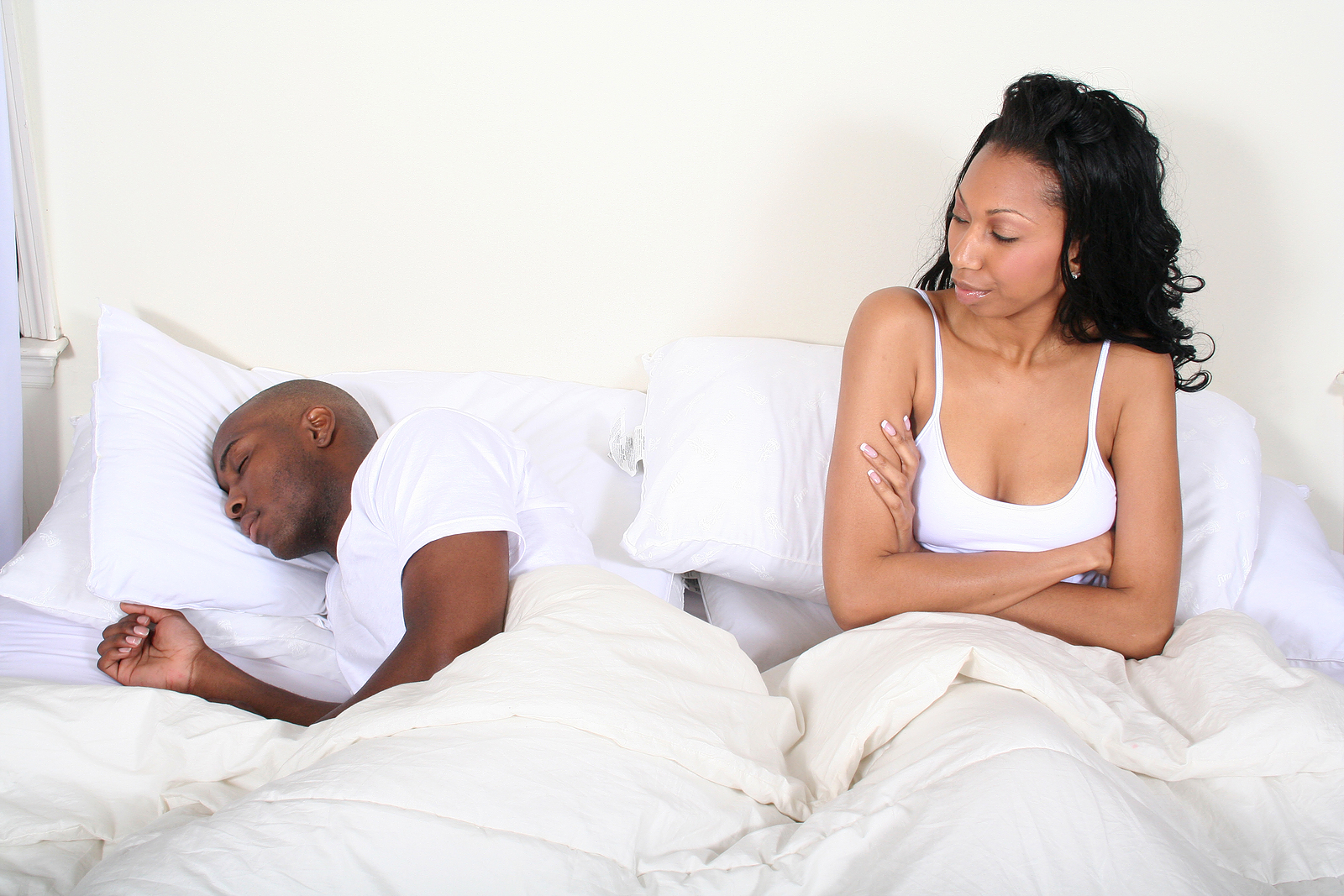by Arianne Cohen
Ask yourself these four questions:
1. Are you awakened more than once each night by snoring, bathroom trips, accidental jabs or night talking?
2. Do you two go to sleep and wake up at different times?
3. Would you describe your overall sleep habits — length of sleep, nap habits, comfort needs — as different from your partner’s?
4. During the night, do you yell something like, “Please for the love of…!” on a regular basis?
If you answered yes to two or more questions, read on.
In my case, I answered all four questions with a maniacal YES. My husband and I are now happy newlyweds, but I discovered two months after shacking up with him that I was dreading the nightly wake-ups when he slid into bed two hours after me. I awoke for his every bathroom trip, and when he tossed, I turned. I pleaded defeat to his habit of leaving his phone on overnight — we’re recent West Coast transplants, which means that East Coast friends regularly call at 6:15 a.m. (Typical voice mail: “Oh shoot man, it’s really early there, isn’t it. I forgot. But anyway…”)
Before our marriage, I had considered my sleep habits to be unremarkable: I prefer a dark quiet room where no one moves or makes noise for eight hours. This is not my husband’s M.O. He opens doors and turns on lights (albeit quietly). His morning motto is, “Why hit snooze once when you could hit it five times?” He eventually developed a term for my anger: “sleep hostility.”
And so I moved out. Out of the room, that is, and into the guest bedroom. I painted it a decidedly feminine shade of purple, and went there to get some sleep. Real sleep, especially on nights I really need it, like before career-changing presentations or early-morning meetings. Done. I sleep there two or three nights a week.
I can’t say enough positive things about the two-bedroom solution. First off, our sex life has only improved; since we miss each other, sleeping in my husband’s room now truly feels like a date. Now that I enjoy eight hours of uninterrupted sleep at least twice a week, my mood is better — and so is our quality of life. The separate room also allows me a place to talk full volume on the phone, or bite my nails over late-night deadlines. In short: It’s my woman cave.
My husband and I are far from the only sufferers of dysfunctional couples’ sleep. William Dement, a physician and professor of psychiatry and behavioral science at Stanford University who holds doctorates in physiology and sleep medicine, suggests that the first step to addressing your sleep woes is to identify what, specifically, is waking you up. “Sleep disturbances are highly individual,” he says. “The same things that don’t bother some people really do bother others.” Keep a pad and paper next to your bed and write down what jolts you awake. Kicking? Snoring? Bathroom trips? Talking? Cold? Overheating? Cuddling gone wrong?
If your awakenings come from physical jostling, consider a larger bed. “We’ve done studies with couples, and if the bed is big enough, there really is no disturbance at all,” says Dr. Dement. “But if they’re not able to afford a king or even a queen-size bed, when someone rolls over, it disturbs the other person.”
If the culprit is noise, consider an age-old solution. “Really good ear plugs handle many problems,” says Dement. Temperature issues can be solved with his-and-her comforters.
And if all else fails, head to your own room — preferably along with a white noise machine like those frequently seen in therapists’ offices, which also happens to muffle toilet flushes, all manner of canine tomfoolery and husbands sticking their heads into your cave to see if you want to have a little late-night date…
(via upwave.com)







